FAQ
- What are insoles, and what purpose do they serve?
Insoles, also known as shoe inserts or footpads, are additional layers of material placed inside shoes for various purposes. They provide extra cushioning, support, and stability, addressing issues such as foot pain, arch support, and alignment.
- How can I determine if insoles are necessary for me?
If you experience foot discomfort, pain, or fatigue during daily activities, sports, or work, it might be a sign that your shoes lack proper support. Insoles can help alleviate these issues by providing additional cushioning and support.
- Can insoles help with specific foot conditions?
Yes, insoles are designed to address various foot conditions, including plantar fasciitis, flat feet, high arches, and more. Specialized insoles can provide targeted support to alleviate symptoms associated with these conditions.
- Are there different types of insoles for different activities?
Absolutely. Insoles are tailored to various activities, such as running, walking, standing for long hours, and specific sports. Each type is engineered to provide the appropriate support and cushioning needed for the demands of the activity.
- How do I choose the right insoles for my shoes?
Consider your specific needs, your foot type, and the activities you engage in. Look for insoles that offer proper arch support, and cushioning, and are suitable for your shoe type. It’s imperative to try them on and make sure they fit comfortably.
- Can insoles be transferred between different pairs of shoes?
In many cases, yes. However, the fit and effectiveness of the insoles may vary depending on the shoe’s design. Some insoles are designed to be easily transferable, while others may be more specific to certain shoe types.
- How often should I replace my insoles?
The lifespan of insoles depends on factors like usage, material, and the specific demands of your activities. On average, it’s recommended to replace insoles every 6-12 months or when signs of wear and reduced support become apparent.
- Can insoles prevent foot odor?
Yes, some insoles are designed with antimicrobial properties or moisture-wicking materials to help prevent the growth of odor-causing bacteria and keep your feet feeling fresh.
- Are custom-made insoles worth the investment?
Custom-made insoles, often prescribed by a podiatrist, can be beneficial for individuals with specific foot conditions. While they may be more expensive, they offer personalized support tailored to your unique foot anatomy.
- How do I clean and maintain my insoles?
Most insoles can be wiped down with a damp cloth. It’s essential to follow the manufacturer’s care instructions, as some insoles may be machine washable, while others require hand cleaning. Proper maintenance ensures longevity and continued effectiveness.
